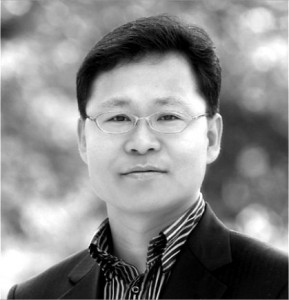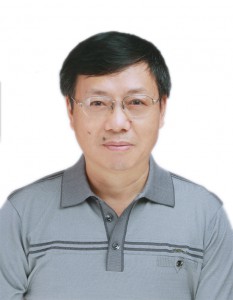Keynote 1
Ubiquitous computing and healthcare in Jeju Island
Yungcheol Byun, Ph.D., Professor, Jeju National University, Jeju, Korea
Summary: Health care is the diagnosis, treatment, and prevention of disease, illness, injury, and other physical and mental impairments in human beings. Ubiquitous computing is an advanced computing concept where computing is made to appear everywhere and anywhere. In contrast to desktop computing, ubiquitous computing can occur using any device, in any location, and in any format. Therefore, ubiquitous health care means the health care with ubiquitous computing technologies for more convenient health care services from the view point of patients. Meanwhile, Ubiquitous Healthcare Town is one Jeju’s six core national projects, which is a global medical multi-purpose complex where premium medical services with leisure and entertainments are provided by using ubiquitous technologies. This presentation will cover the following topics: Jeju healthcare town, ALE-compliant middleware for ubiquitous healthcare, ubiquitous services using a wearable sensor device, sensor data code conversion in middleware, ontology design and knowledge representation for sensor data processing, the design and implementation of healthcare services, ubiquitous UI device and OSGi-based healthcare gateway, and etc.
Biography: Dr. Yungcheol Byun is a full professor at the Computer Engineering Department (CE) at Jeju National University. His research interests include the areas of Intelligent Computing, Semantic Web and Ontology, Home Network and Ubiquitous Computing, Healthcare, RFID Middleware, Artificial Intelligence, and Pattern Recognition. He directs the Internet Computing Laboratory at the CE department. Recently, he studied at University of Florida as a visiting professor from 2012 to 2014. He is currently serving as a director of Information Science Technology Laboratory, and other academic societies. Outside of his research activities, Dr. Byun has been hosting an international conference, CNSI (Computer, Network, Systems, and Industrial Engineering), and also serving as a program chair, workshop chair, and session chair in various kinds of international conferences and workshops. Dr. Byun was born in Jeju, Korea, and received his Ph.D. and MS from Yonsei University in 1995 and 2001 respectively, and BS from Jeju National University in 1993. Before joining Jeju National University, he worked as a special lecturer in SAMSUNG Electronics in 2000 and 2001. From 2001 to 2003, he was a senior researcher of Electronics and Telecommunications Research Institute (ETRI). He was promoted to join Jeju National University as an assistant professor in 2003.
Keynote 2
An approach to dynamic reconfiguration of Web application using compatibility verification
Prof. Huaikou Miao, Professor, Shanghai University, China
Summary: Implemented by dynamic services composition and integration, Web application has significantly influenced our daily life. However, the open and ever-changing environment makes Web users more vulnerable to the usability problem, i.e. unreachable pages and reduced responsiveness. Accordingly, there is a need to deliver reliable Web application. The compatibility verification of dynamic reconfiguration strategies can guarantee the robustness and high quality of Web-based software. In this talk, I present the approaches to the dynamic reconfiguration of Web application using compatibility verification. The finite state machine (FSM) is extended to formalize the behavior of Web application, namely the extended FSM for Web applications (EFSM4WA) model. Then, the approaches to compatibility verification of dynamic reconfiguration are introduced. The trace projection approach is used to check the compatibility against the synchronized product model in a qualitative way, which will select a set of candidate Web applications. And then, the quantitative verification is used to choose a high reliable Web application with high performance. Finally, a case study is demonstrated to show the applicability of our approaches.
Biography: Huaikou Miao is a Professor of Computer Science of the School of Computer Engineering and Science at Shanghai University. He received his Master’s Degree from Shanghai University of Science and Technology in 1986. He was a Visiting Scholar at the University of York, UK, from October 1992 to January 1995. His interests include formal methods, software testing and verification, software development environments, and automatic reasoning. He has published numerous articles and 7 co-authored books about formal methods and data structures. He was the program chair of ICFEM 2002 held in Shanghai, China in 2002, the program chair of ICIS 2009 in Shanghai, China in 2009, and conference chair of ICIS 2012 in Shanghai, China.



